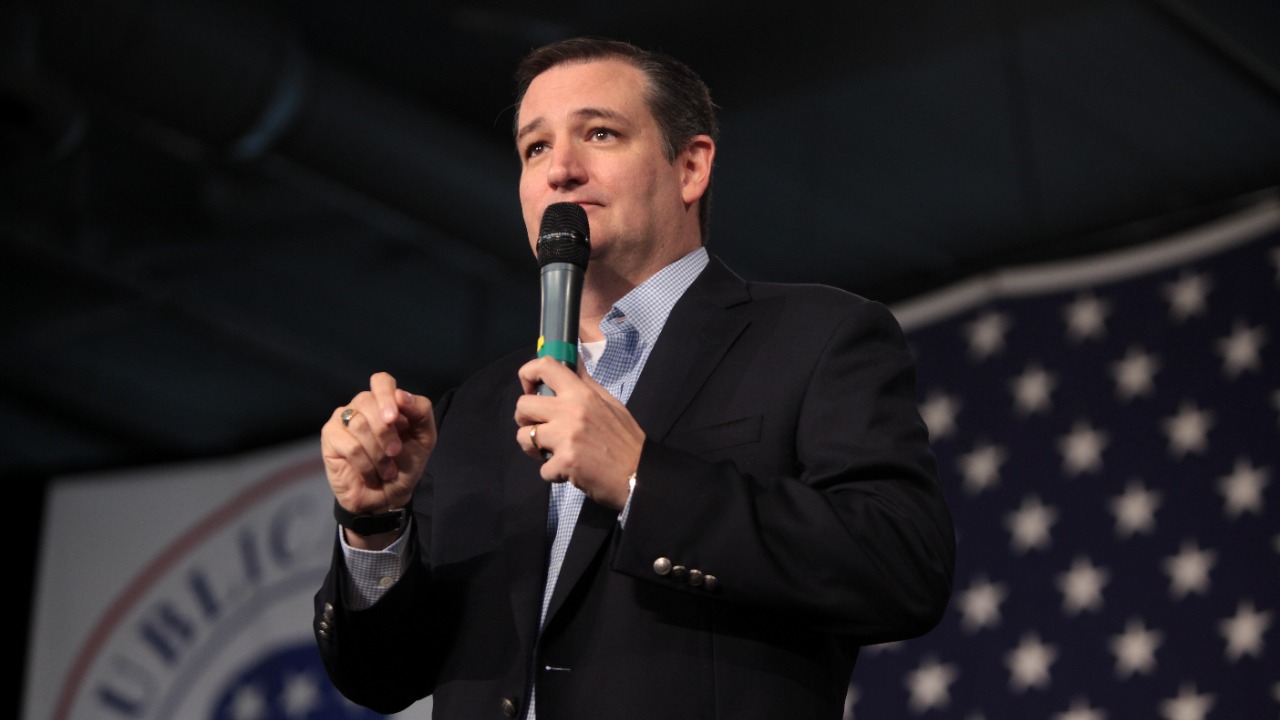On September 30, 2025, Senator Ted Cruz blocked a bill intended to extend privacy protections to all Americans, sparking significant debates within the Senate and among privacy advocates. The bill aimed to address growing concerns about digital privacy in an increasingly connected world. Cruz’s decision has drawn attention from both supporters and critics, highlighting the ongoing tension between privacy rights and political interests.
The Bill’s Objectives

The proposed bill sought to introduce comprehensive privacy protections for all Americans, focusing on safeguarding personal data in the digital age. It aimed to establish stricter regulations on how companies collect, store, and use consumer data, ensuring that individuals have greater control over their personal information. The bill’s sponsors argued that such measures are crucial in protecting citizens from data breaches and unauthorized surveillance, which have become more prevalent with technological advancements.
Motivated by a series of high-profile data breaches and growing public concern over privacy, the bill’s proponents emphasized the need for robust legislation to keep pace with the rapid evolution of technology. They highlighted the importance of aligning U.S. privacy laws with those of other countries that have already implemented stringent data protection measures. The broader context of this legislative effort reflects an increasing recognition of privacy as a fundamental right in the digital era, where personal data is often commodified and exploited.
In addition to its primary focus on consumer data, the bill also aimed to enhance transparency in corporate data practices. It proposed mandatory disclosures from companies regarding how data is collected, processed, and shared, thereby empowering consumers with the knowledge to make informed decisions. This transparency was seen as a critical step in building trust between consumers and businesses, particularly in an era where data is often shared across multiple platforms without explicit consent.
Furthermore, the bill included provisions for the establishment of a federal oversight body tasked with monitoring compliance and enforcing penalties for violations. This body would serve as a central authority to ensure that companies adhere to the new regulations, providing a streamlined process for addressing grievances and holding violators accountable. By creating a dedicated agency, the bill sought to provide a cohesive framework for privacy protection, akin to the European Union’s General Data Protection Regulation (GDPR), which has been lauded for its effectiveness in safeguarding personal data.
Ted Cruz’s Opposition

Senator Ted Cruz’s opposition to the bill was rooted in concerns about its potential impact on businesses and innovation. Cruz argued that the proposed regulations could impose undue burdens on companies, particularly small businesses, by increasing compliance costs and stifling technological advancement. In public statements, he emphasized the need to balance privacy protections with economic growth, suggesting that the bill’s approach was too restrictive.
Politically, Cruz’s stance may be informed by a broader ideological commitment to limited government intervention in the marketplace. His decision to block the bill could be seen as aligning with conservative principles that prioritize free-market solutions over regulatory mandates. This move might bolster his standing among constituents who favor minimal government oversight, but it also risks alienating privacy advocacy groups that view comprehensive privacy legislation as essential.
Cruz’s opposition also stemmed from concerns about the bill’s potential to create a competitive disadvantage for American companies in the global market. He argued that stringent regulations could hinder innovation by imposing rigid constraints that limit the flexibility needed to adapt to rapidly changing technological landscapes. Cruz suggested that instead of broad regulatory mandates, a more tailored approach that considers the unique needs of different industries might be more effective in fostering innovation while still protecting consumer privacy.
Additionally, Cruz pointed to the potential for regulatory overreach, where excessive government involvement could stifle entrepreneurial ventures and discourage startups from entering the market. He advocated for a balanced approach that encourages self-regulation and industry-led initiatives, which he believes could achieve the desired privacy outcomes without the drawbacks of heavy-handed legislation. This perspective aligns with a broader conservative ideology that favors market-driven solutions over government-imposed directives.
Reactions and Implications

The blockage of the bill has elicited a range of reactions from other senators and political figures. Some lawmakers expressed disappointment, arguing that the bill represented a necessary step toward protecting citizens’ privacy rights. Others supported Cruz’s decision, echoing concerns about the potential economic impact of the proposed regulations. This division highlights the ongoing debate over the appropriate balance between privacy and economic interests in legislative efforts.
Privacy advocacy groups have been vocal in their criticism of the bill’s blockage, warning that failure to enact comprehensive privacy protections leaves Americans vulnerable to data exploitation. These organizations are likely to continue lobbying for similar legislation, potentially seeking to address Cruz’s concerns in future proposals. The bill’s failure underscores the challenges of advancing privacy legislation in a politically divided environment, where competing interests often complicate consensus-building.
The bill’s blockage has also sparked discussions about the role of federal versus state-level privacy regulations. Some lawmakers have suggested that states might take the lead in implementing their own privacy laws, similar to California’s Consumer Privacy Act, which has set a precedent for state-level data protection. This could lead to a patchwork of regulations across the country, complicating compliance for businesses operating in multiple states and potentially prompting calls for a unified federal standard in the future.
Moreover, the international implications of the bill’s failure have been noted by foreign policy experts who warn that without comprehensive privacy protections, the U.S. risks falling behind other nations in setting global standards for data privacy. This could impact international trade negotiations and the ability of American companies to compete in markets where stringent privacy laws are already in place. The ongoing debate highlights the complex interplay between domestic policy decisions and their broader global ramifications.
Public and Expert Opinions

Public opinion on privacy protections has increasingly favored stronger measures to safeguard personal data, reflecting widespread concern over data breaches and unauthorized surveillance. Many Americans view privacy as a fundamental right that should be protected by law, aligning with the bill’s objectives. This sentiment is likely to influence future legislative efforts, as lawmakers seek to respond to constituents’ demands for greater privacy safeguards.
Experts in data privacy have underscored the necessity of implementing comprehensive protections to address the vulnerabilities inherent in the digital landscape. They warn that without robust legislation, individuals remain at risk of having their personal information misused or exposed. The potential consequences of not enacting such measures include continued data breaches and erosion of public trust in digital services. As public sentiment increasingly prioritizes privacy, it is expected to play a significant role in shaping legislative priorities and outcomes in this domain.
For more details on the bill and Ted Cruz’s decision, you can read the full article on TechCrunch.